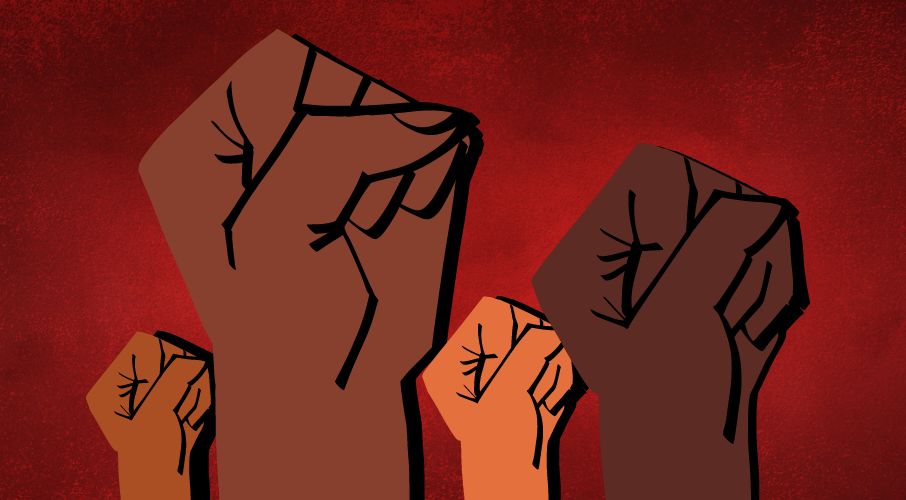By Samuel Sey, July 21, 2022
In February 2021, a supposedly Christian university named Ambrose University invited me to speak on racism for Black History Month. However, weeks after I delivered my speech, the university released a statement saying I “caused severe harm to those who were in attendance.”
They also said: “We want to acknowledge the harm that was caused as a result of the statements made by the past guest speaker and send a sincere apology to those who have been denigrated.”
What did I say in my speech that “caused severe harm”? How did I “denigrate” people? What heresy do I believe in that warrants public condemnation?
I “denied the existence of systemic racism” in Canada.
In our current climate, denying the critical race theory concept of systemic racism is like committing a hate-crime. In my case, it’s actually worse—it’s like a black-on-black hate crime.
I am a black Canadian, a black Canadian denounced by three white faculty members at a “Christian” university because I am not a critical race theorist.
Many Canadians believe critical race theory is mostly an American issue with merely a little influence in Canada. But critical race theory is just as consequential in Canada as it is in America. In fact, critical race theory is arguably more popular in Canada than it is in America.
This is because in Canada, critical race theory hasn’t received nearly the kind of attention and opposition that it has received in America. Canadians are generally less informed and therefore more apathetic about critical race theory. As a result, critical race theory has become so popular a supposedly conservative and Christian university cancelled a black man for speaking against it.
Actually, it’s much worse than that. Critical race theory has become so popular in Canada, the Ontario government voted in favour of and advanced the most radical critical race theory bill in the world: Bill 67.
Bill 67, also called the Racial Equity in the Education System Act, would have amended the Educational Act to make critical race theory a fundamental and enforceable part of Ontario’s educational system.
Some of Bill 67 demands were that:
- School boards and post-secondary institutions should make critical race theory concepts of anti-racism and racial equity an essential element of their curriculums.
- Teachers who do not provide “anti-racism awareness and efforts to promote racial equity” after performance appraisals may lose their jobs.
- Aspiring teachers should be required to “successfully complete any prescribed examinations and training in anti-racism in order to be issued a certificate of qualification and registration.”
- There will be “fines [$200] for persons [including, possibly students] who disrupt or attempt to disrupt proceedings of a school or class through the use of racist language or activities.”
The Bill doesn’t specify what constitutes “racist language or activities.” That’s crucial, especially since under Bill 67, opposition to critical race theory is itself a racist act.
Indeed, Bill 67 is the most radical critical race theory bill in the world. And it could have become a law—not in California, not in New York— but in Ontario, through universal support from the Progressive Conservative party of Ontario. Fortunately, the Bill died at committee when the Ontario legislature was dissolved for the 2022 election, but this hardly inspires much confidence.
Bill 67 passed second reading, and had it remained intact through committee and proceeded to its third reading, in all likelihood it would have become a law. had individuals like me, Jamil Jivani, and organizations like Parents As First Educators not been involved. Had it not been for our pressure to persuade legislators to vote against it, there is no reason to believe that any PC caucus members would have had the moral clarity and courage when a third reading came.
Nevertheless, just as schools across Canada were teaching critical race theory before Bill 67, they’re still teaching it after Bill 67’s demise.
Essentially all teacher’s federations in Canada—especially Ontario Teacher’s Federation—have adopted critical race theory as a major part of their curriculum. For instance, their affiliate, Elementary Teachers’ Federation of Ontario (the largest education union in Canada), instruct teachers in their lesson plans to use critical race theory to create “shifts in attitudes and beliefs for equity” in students as young as 7-9 years old.
The same lesson plans say:
“Equity does not mean treating people the same without regard for individual differences.”
Another lesson plan instructs teachers to:
“make explicit connections between the role of educational systems in creating and reinforcing the dominant narrative of white culture.”
The lesson plan goes on to say:
“Explain: Since the colonization of North America, decisions about what schools teach and who can teach and learn in schools have been determined by White, Eurocentric governments. As a result, the curriculum expectations, learning resources and teaching staff in schools/learning communities have been dominated by White, Eurocentric history and culture.”
That is key to understanding why critical race theory is so popular in Canada. Many conservative Canadians have been led to believe critical race theory is strictly a framework for analysing the role of racism in American history. That, however, isn’t true.
As suggested by the latter quote from Elementary Teachers’ Federation of Ontario’s lesson plans, critical race theory is critical of North America, the Western world, or “Eurocentric governments” founding principles.
One of the founders of critical race theory, Richard Delgado, said:
“Unlike traditional civil rights discourse, which stresses incrementalism and step-by-step progress, critical race theory questions the very foundations of the liberal order, including equality theory, legal reasoning, Enlightenment rationalism, and neutral principles of constitutional law.”
Meaning, critical race theory isn’t necessarily a reaction to America’s history with racism. It’s a reaction to the Western world’s founding principles—including Canada’s. In other words, critical race theory capitalizes on white guilt on race in order to create a revolution against Canadian values like equality.
Critical race theorists recognize people are more willing to reject our system for an “equitable,” illiberal, and totalitarian system if they label our current system as racist. Many Canadian conservatives, however, continue to be uninformed or unconcerned about critical race theory—and that’s why the ideology has become so popular in Canada.

Samuel Sey
Samuel Sey is the founder of SlowToWrite.com, where he writes about racial, cultural, and political issues with Christian theology. He is also currently a spokesperson on critical race theory for Parents As First Educators (PAFE).

